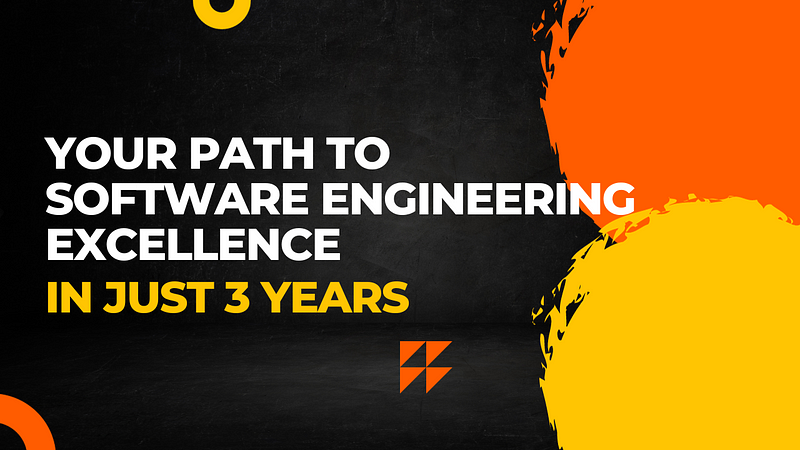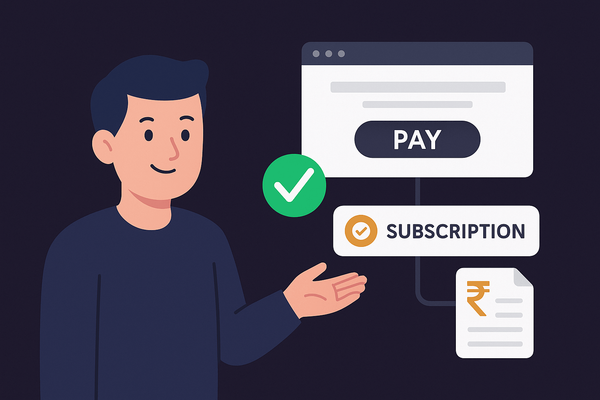Building the Future: A Three-Year Plan for Aspiring Software Engineers

Imagine you’re a college student with a dream — the dream of becoming a software engineer. You’ve got three years ahead of you, and you’re eager to embark on a learning journey. Here’s how I would go about it.
Year 1: Laying the Foundation
I’d start my journey by building a rock-solid foundation. In the first year, I’d immerse myself in the fundamentals.
Chapter 1: Learning the Basics
In the beginning, I’d master a low-level language, such as C. I’d dive into memory management and pointers, understanding how computers work at their core. It may sound complex, but it’s the foundation of my coding skills.
Chapter 2: Diving into OOP
Moving forward, I’d explore the world of Object-Oriented Programming (OOP). Creating classes, objects, and inheritance would be my new language. These concepts are like the building blocks for my future.
Chapter 3: Exploring Modern Languages
By the end of the first year, I’d start peering into modern languages. Rust, a language known for its memory safety and system-level capabilities, would be my main focus. And why not, let’s also get acquainted with Go for a broader perspective.
Year 2: Building on My Skills
Now, it’s time to take my skills to the next level and explore more of the exciting world of software engineering.
Chapter 4: Mastering Data Structures and Algorithms
In the second year, I’d immerse myself in Data Structures and Algorithms (DSA). This stuff is like magic for efficient problem-solving and optimized code. I’d build a rock-solid foundation in this area; it’s crucial!
Chapter 5: Exploring Multiple Domains
Before finalizing my specialization, I would have taken a peek into various domains. I’d venture into the realms of machine learning, web development, and app development. This would give me a taste of the vast array of opportunities in software engineering, aiding me in making a well-informed decision about where I wished to direct my future.
Year 3: Finding My Passion and Specialization
In my third year, it is time to pinpoint my true passion within the world of software engineering. I am on a quest to discover the domain that truly resonates with me. This year is all about finding my specialization and gaining real-world experience.
Chapter 6: Exploring and Deciding My Domain
The first step is to take a step back and review all the domains I explored during Year 2. I dipped my toes into machine learning, web development, and app development, experiencing the diverse possibilities within software engineering. Now, it is time to make an informed decision about which domain I want to specialize in.
Chapter 7: Understanding Roles in My Chosen Domain
Once I have my domain in mind, I begin researching it extensively. I scour the internet to understand every job role within that domain and what each role entails. This step is crucial in comprehending the landscape of the chosen field.
Chapter 8: Sorting Roles and Work
With a list of job roles in my chosen domain, I categorize them based on the sequence of work required to complete a project. This involves sorting roles from those involved in the initial planning and design stages to those contributing to implementation, testing, and deployment.
Chapter 9: Specializing and Building a Project
Armed with a clear understanding of the roles and their responsibilities, I choose a starting point. I decide to dive deep into one specific role, beginning with the tasks that the person in that role typically completes. This hands-on approach allows me to gain practical experience.
Chapter 10: Completing My Final Year Project
As I progress through my chosen role, I start building a project. With each task and responsibility that I take on, the project evolves. This project serves as a culmination of my learning journey, a testament to my dedication, and a testament to my passion for my chosen domain.
Chapter 11: Refining and Becoming an Experienced Engineer
As the project nears completion, I focus on refining it, addressing any issues, and ensuring it meets the highest standards of quality. By the end of Year 3, not only do I have a polished final year project, but I also have transformed into an experienced software engineer, fully equipped with the knowledge and skills required to join any company in the world, whether as a fresher or a junior software engineer.
My three-year journey has taken me from a curious college student to a proficient and specialized software engineer, ready to make an impact in the world of technology. The path was challenging, but the reward of discovering my true passion and contributing to the tech industry was well worth the effort. My journey is complete, and I am prepared to embrace the endless possibilities of a career in software engineering.




